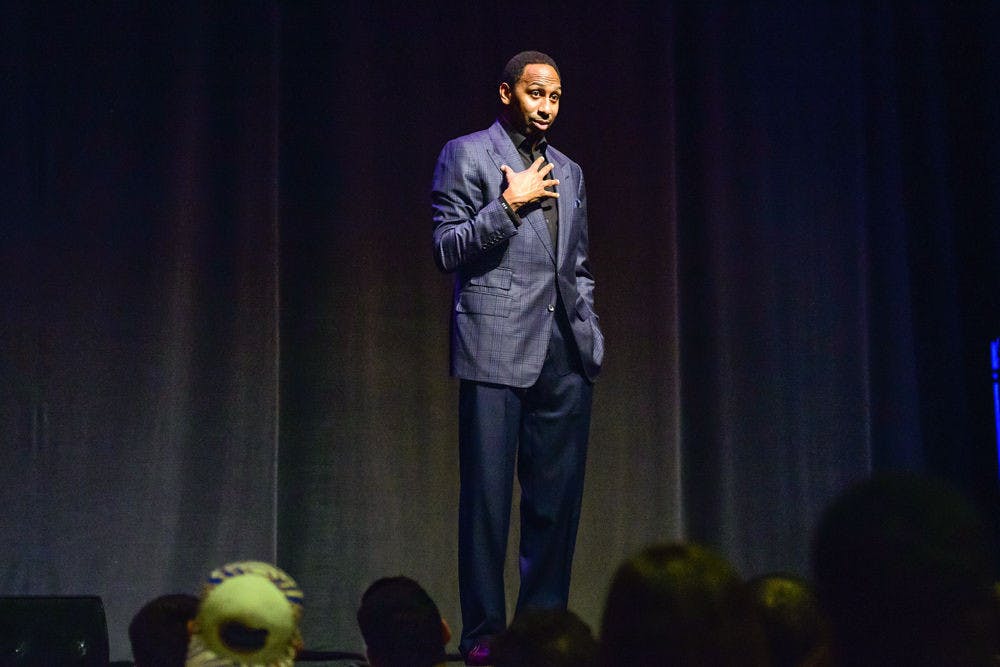The Alligator sports department welcomed five new staffers this week. As sports editor, it was my job to hire them. And while I’m confident the folks we brought in will do well here, I noticed an unsettling trend in many of the applications.
The last question on the initial form asked what sports media the applicant consumed as well as who the applicant’s favorite sports journalists were.
At least 50 percent of the applications listed ESPN’s Stephen A. Smith.
Now, if I had been asked that question as a freshman, I also probably would’ve listed Smith, but there’s a problem: Stephen A. Smith is not a sports journalist.
He does very little, if any, reporting, preferring to practice talking louder than his competition on ESPN’s “First Take,” a daily show during which Smith and co-arguer Max Kellerman debate sports issues.
Nevertheless, when I was young and naive, I loved watching Smith. I definitely would’ve also (wrongly) called him a journalist. And I wanted to be just like him.
But somewhere between the time I got hired at the Alligator and now, I realized that I didn’t like what he did. I started reading — something I never did before college — legitimate sports journalism, discovered that writing was what I really liked and decided to focus my career on it instead of aspiring to be a talking head. There was just one problem.
I tried — and, for a long time, failed — to figure out why sports journalism was important.
Journalism I could understand. There are abuses of power, wars and diseases every day all over the world, and people need to know about those things. If I were spending my time reporting on that kind of impactful news, I think I could find fulfilment knowing that in some small way, I was doing some service greater than myself.
With sports, however, I didn’t feel fulfilled at all. In some ways, I still don’t.
For example, while I love getting to go cover sporting events live, I don’t think there’s anything meaningful about writing a game story. It’s fun, sure, but it’s not fulfilling.
The argument I’ve always heard for the importance of sports journalism, however, is that it serves as a “catharsis,” or a temporary escape from the struggles of reality. People read game stories and other sports stories to get away from whatever hurdles they face in their lives, if only momentarily.
But if this is the case, then Smith, Skip Bayless and others like them should be revered far more than any sports journalists. There are few who can talk points to their graves for three straight hours, day after day, like they can. And undeniably, these talking points are excellent distractions.
So why is actual sports journalism different from Smith’s talking head-dom? Think about it like this: Watching “First Take” is sort of like reading an instruction manual. It’s distracting, but when you’re done reading, you’ve really learned nothing except a very specific skill.
Good sports journalism, meanwhile, is more like a compelling novel. The story is distracting, sure, but the point it makes and the impact that results will last.
Ethan Bauer is the sports editor. His column appears on Wednesdays. Contact him at ebauer@alligator.org, and follow him on Twitter @ebaueri.
ESPN columnist, sports analyst and radio host Stephen A. Smith speaks to students at the Phillips Center for the Performing Arts on Nov. 12, 2014.





